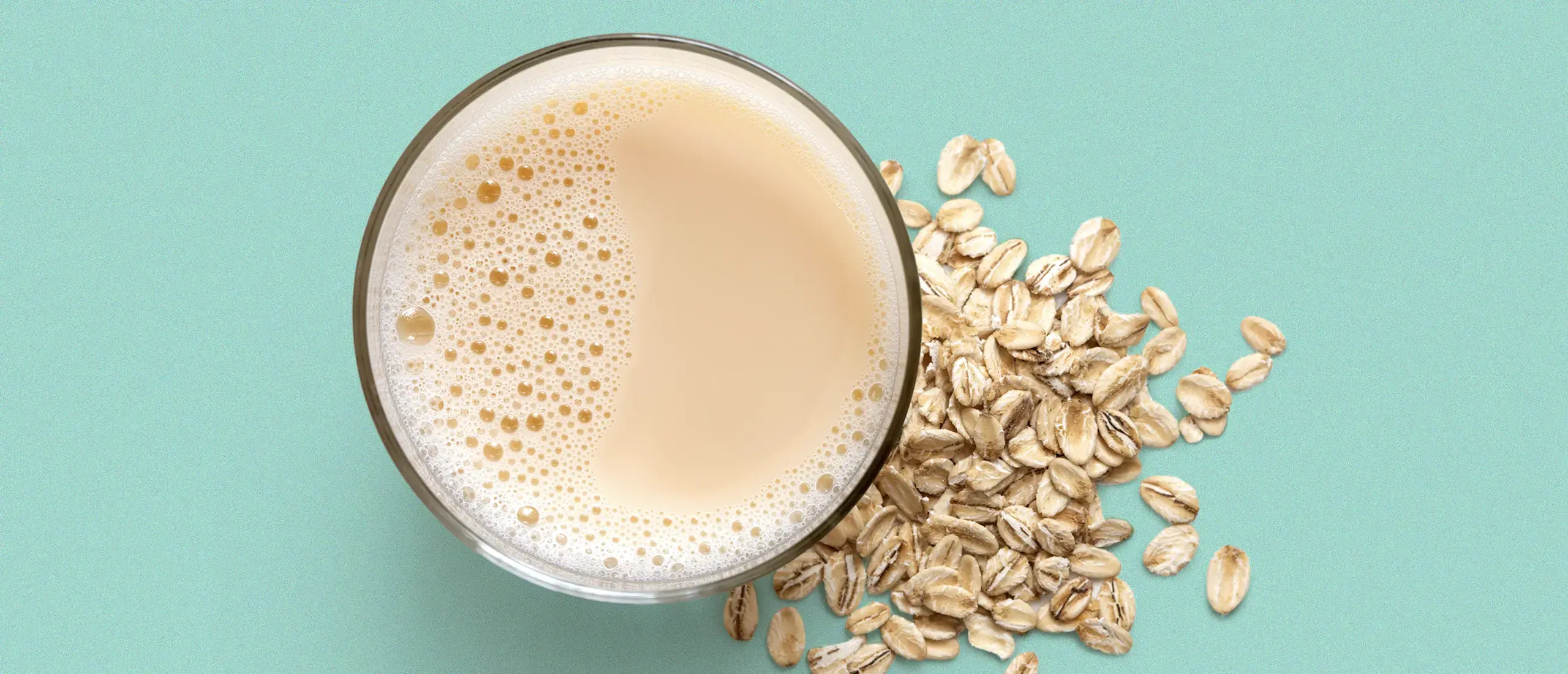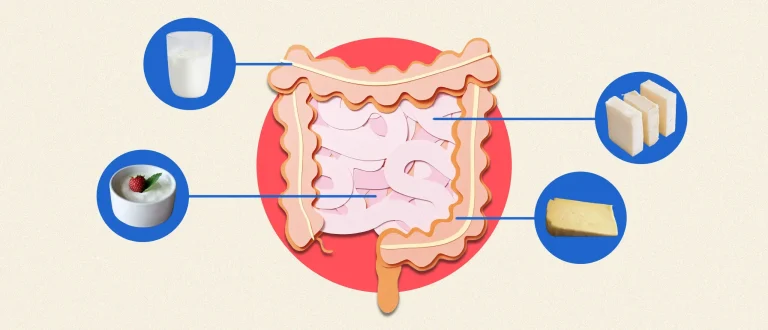The 5 Healthiest Oat Milk Brands, According to a Registered Dietitian
- By Sydney Greene, M.S., R.D.
- April 1, 2024
Our product recommendations are selected by editors, tested first-hand, or expert-approved. We may earn a commission through links on our site.
Step aside dairy, soy, and almond milk—oat milk is revered as being the creamiest “milk” option on the block. This plant-based milk substitute is slightly sweet, mixes well in coffee, and froths just like dairy milk. And arguably one of the tastiest options for people with nut or dairy allergies or lactose intolerance. But is oat milk good for you? Here’s everything you need to know, including the healthiest oat milk options available on grocery store shelves.
Is Oat Milk Healthy?
In comparison to dairy and other plant-based milks, oat milk is at the back of the pack when it comes to nutrition. Soy and hemp milk (assuming they are unsweetened) tend to be the “healthiest” plant-based milks on the market because their protein content is comparable to dairy milk and they both contain a good amount of vitamins and minerals.
Like nut milk, oat milk is low in protein; and, unlike soy, hemp, and nut milks, oat milk is high in carbohydrates (thanks to the oats it’s made with). One serving of oat milk contains anywhere from 16 to 20 grams of carbohydrates which is comparable to a slice of bread.
There’s nothing wrong with drinking your carbs, but if you are using oat milk with an already carbohydrate-rich meal like cereal or oatmeal, the overall carb load is a potential blood sugar spike and crash waiting to happen. For this reason, it’s best to pair carbs with other milks, and save oat milk for your coffee or a protein shake.
How to Choose the Healthiest Oat Milk
Some oat milks are healthier than others. Here’s what to look for:
Low in added sugar
Since oats are made up of long chains of carbohydrates that ultimately break down into sugar, oat milk typically contains several grams of total sugar. During processing, some brands also use enzymes to break down their oats—a process that creates even more sugar. These sugars are listed as added sugars; which is why some oat milks have added sugars listed on the label, but no sugar listed in their ingredients list.
In addition, some companies will add even more sugar—typically in the form of cane sugar—to oat milk for added sweetness and flavor. It’s these added sugars you want to look out for—they’ve been linked to everything from inflammation to obesity (1, 2).
The American Heart Association (AHA) recommends men consume no more than 36 grams of added sugar a day (3). Oat milk with zero grams of added sugar is best; however, if your only options contain added sugar, steer clear of sweeteners in the ingredients list if possible. Aim to keep total sugar (or sugar in any form) under eight grams per serving.
No added oils
Many oat milks have seed oils—like canola or sunflower oil—added to them to improve the texture and mouthfeel of the milk. While these oils are not innately harmful, there is such a thing as too much of a good thing.
Sunflower oil and canola oil are rich in omega-6 fatty acids and research shows that most Americans consume far too many omega-6 fatty acids and not enough omega-3 fatty acids—a combo that can lead to inflammation (4).
If you consume oat milk regularly, choose a product without added plant oils to prevent a higher intake of omega-6 fatty acids.
Fortified with nutrients
One of the main issues with plant-based milk is that compared to dairy milk, vegan milk is often very low in vitamins and minerals. Oat milk is no exception. Some oat milk brands will add calcium, vitamin D, vitamin A, and vitamin B12 to their products to make them comparable to dairy milk, but it’s the exception, not the rule.
If you eat a balanced, varied diet, you probably don‘t need to worry about the lack of nutrients in plant-based milk. However, if you have a fairly limited diet, it is important to look for oat milk that is fortified with nutrients.
Glyphosate free
Glyphosate is one of the most commonly used herbicides in the world (5). In recent years, the company that created the herbicide known as RoundUp—which uses glyphosate as its main ingredient—has been sued for its role in causing harmful diseases such as cancer.
In 2015, the International Agency for Research on Cancer (IARC) named glyphosate as probably carcinogenic to humans (6). According to the Environmental Working Group (EWG), a nonprofit and nonpartisan organization, glyphosate has been found in numerous types of cereal, particularly oat-based products (7).
In response to glyphosate concerns, a third-party testing agency known as The Detox Project offers a Glyphosate Residue Free certification for products that have been tested and proven to be glyphosate-free. It’s worthwhile to look for glyphosate-free products if you drink oat milk daily; however, if you are only an occasional oat milk drinker, you probably don’t need to worry.
5 Healthiest Oat Milk Brands
Taking all of the above into consideration, here are the healthiest oat milk brands on the market.
The Unhealthiest Oat Milk Brands to Avoid
The worst oat milk brands simply contain a high amount of added sugar in a single serving. You’ll be hard-pressed to find a flavored option that doesn’t have added sugar. For instance, Planet Oat Chocolate Oat Milk contains 11 grams of added sugar, and Chobani Vanilla Oat Milk contains 9 grams. But even plain versions can contain a sneaky amount of sugar. Pacific Foods Organic Oat Milk, for example, contains 17 grams of added sugar in one serving.
References
1. Ma, X. et al. (2022). Excessive Intake of Sugar: An Accomplice of Inflammation.
2. Faruque, S. et al. (2020). The Dose Makes the Poison: Sugar and Obesity in the United States—A Review.
3. American Heart Association (2021). How Much Sugar Is Too Much?
4. Simopoulos, A. et al. (2016). An Increase in the Omega-6/Omega-3 Fatty Acid Ratio Increases the Risk for Obesity.
5. Costas-Fereirra, C. et al. (2022). Toxic Effects of Glyphosate on the Nervous System: A Systematic Review.
6. International Agency for Research on Cancer (2015). IARC Monographs Volume 112: Evaluation of Five Organophosphate Insecticides and Herbicides.
7. Environmental Working Group (2023). Going, Going, Gone? EQG Finds Glyphosate Levels Drop in Oat-Based Products.












